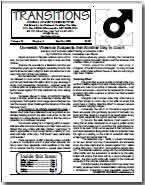 Natasha Stott Despoja, Chair of domestic violence lobbying organisation Our Watch says violence against women doesn’t discriminate. Only, actually, it does. (Pic: Supplied)
Natasha Stott Despoja, Chair of domestic violence lobbying organisation Our Watch says violence against women doesn’t discriminate. Only, actually, it does. (Pic: Supplied)
It is a marvellous irony that the domestic violence activists who have spent the week abusing and misrepresenting me claim to be champions of “respect” for women.
My sin was to point out the incontrovertible truth about domestic violence, that it is overwhelmingly concentrated in dysfunctional remote indigenous communities and public housing estates.
The response from femi-fascists was to try to get me sacked, silenced and banned from twitter.
They called for my “sterilisation”, branded me a “murder apologist”, a “troll”, a “sicko”, an ”idiot”, “a bimbo”, “a vile creature dangerous to kids”, “nasty and vicious”, “stupid”, “a disgrace”, “rabid old hatemonger”, “a typical Australian”.
“Your victim blaming has done almost as much harm to victims of Domestic Violence as the abusers,” read one email.
Yes, the faux-rage meter was at full tilt.
But I value these intemperate expressions, because they provide evidence of a concerted attempt to cover up the truth.
Domestic violence is the last frontier of feminism. You might think women had already achieved equality in the traditional markers of status in our society, most obviously in higher education, where 60 per cent of university graduates last year were female.
But for feminism to remain relevant, it needs to extend victim status even to the most affluent, pampered women of the chattering classes.
Thus the feminist dogma about domestic violence is that all women are equally at risk and all men potential perpetrators.
In the words of Natasha Stott Despoja, Australia’s Ambassador for Women and Girls, and the Chair of domestic violence lobbying organisation Our Watch: “Violence against women does not discriminate, regardless of ethnicity, social status and geography.”
Only, actually, it does.
This is what I pointed out in the column that has enraged the sisterhood, that domestic violence is concentrated in communities where the underclass lives, where welfare dependency has emasculated men, where drug and alcohol abuse is rife, and intergenerational social disadvantage is entrenched.
I cited the latest data from the NSW Bureau of Crime Statistics, showing the rate of domestic violence in Bourke, with its large indigenous population 60 times higher than in affluent north shore Sydney suburbs. The housing estate welfare traps concentrated in Campbelltown and Penrith are similar hotspots.
The evidence is everywhere if you care to look, that poverty, intergenerational dysfunction, mental illness and substance abuse are preconditions for a domestic violence hotspot, with chronic underreporting in indigenous communities hiding the level of distress.
Take the NSW Coroner’s Court’s annual reports of the NSW Domestic Violence Death Review Team which invariably involve welfare dependent couples in and out of jail, with “cumulative social issues in both cases”.
The cases are marked by “serious social disadvantage including in many cases poverty, substance abuse issues, violent coping mechanisms, intergenerational violence”.
Or take the 2011 BOSCAR report Personal stress, financial stress and violence against women which shows “risk of violence increases progressively with the level of financial stress (and) personal stress”.
For pointing out these inconvenient truths, I was accused of “blaming victims”.
Fake quotes attributed to me, such as: “Rich men don’t hit women.”
The classic modus operandi of feminist outrage sites such as MamaMia is to make up a line, pretend I said it and then attack me for (not) saying it.
This is the intolerance of the femi-fascist. They ignore BOSCAR statistics but trumpet every half-baked internet survey which makes a ludicrous claims such as that a quarter of young Australian men don’t think there’s anything wrong with beating women.
When the Our Watch group, which receives $8 million of federal funding each year to “change attitudes”, wrote a rebuttal to my column this week, it airily claimed that “the latest international evidence shows that factors such as low socio-economic status or harmful use of alcohol do not have a constant or predictable impact on levels of violence against women”.
Yet, when challenged to provide this evidence, Our Watch cited a UN report on domestic violence in other Asia-Pacific countries such as Indonesia, PNG and Bangladesh. When further challenged to provide research from comparable countries to Australia, Our Watch cited a European study which contains Australian criticism of “the lack of attention to social class and to working class community norms and pressures” in domestic violence cases; it also cited a study which found that lower socioeconomic status was more frequent among men enrolled in “batterers’ programs”.
Campaigns such as Destroy the Joint’s Counting Women project insist on making domestic violence a gender issue. It claims 66 women are victims this year, with the implication these are all “intimate partner” homicides, perpetrated by males.
In fact, only about half of the homicides cited could be classified as having a male partner or ex-partner identified as the killer.
Some of the 66 victims were killed by women, by sisters, daughters, a female neighbour or, in one case, a female ex-lover of the victim’s husband, as well as by brothers, fathers, and sons.
Domestic violence is a serious enough without exaggerating.
The activists cherrypick facts to support their dogma, rather than using statistics to better target scarce resources to help the most vulnerable victims, and to address the root causes of domestic violence.
To break the intergenerational cycle of violence, I wrote that we need to “end the welfare incentive for unsuitable women to keep having children to a string of feckless men”. This was twisted to claim that I had called victims of domestic violence “unsuitable women”.
The dishonesty is clear. The aim is to avoid the obvious, that boys brought up in an environment of chaos, dysfunction and violence, who are neglected and abused, are more likely to become abusive, violent men with poor impulse control.
But these are not facts the man-bashing femi-fascists who control the domestic violence industry want to hear.


